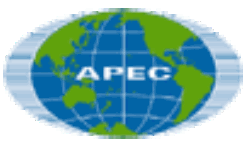<!-- IMAGE -->
As the global economic
downturn enters its second year, the United States and other nations in the
Asia-Pacific region are looking to enhanced trade to help restore growth. The
meeting next month of the Asian-Pacific Economic Cooperation, or APEC, forum will
focus on promoting recovery. Ways to ease trade and discourage protectionism
are expected to be high on the agenda. In a sign of how much importance the
U.S. is giving the meeting, President Barack Obama is scheduled to attend.
The U.S. is looking to develop a 21st century economic policy agenda for its
twenty trading partners in the Asia-Pacific region. Those nations, which range
from China, Russia, Indonesia, Vietnam and South Korea to Canada, Mexico, Chile
and Peru, account for almost half of all global trade. Sixty percent of goods
exported by the U.S. go to APEC economies and five of America's top seven trade
partners are APEC members. Through technical cooperation and policy alignment
APEC works to foster an environment for the safe and efficient movement of
goods, services and people in the region.
By expanding trade among the APEC economies, the U.S. seeks to strengthen
economic integration of the region. Expanding current markets and opening new
ones will promote growth and increase jobs as export flows increase. The U.S.
will work with its APEC partners to promote balanced, sustainable and inclusive
growth, and away from destabilizing booms and busts. This will require nations
like the U.S. that currently have consumer-driven economies to promote more
savings and investment.
The APEC meeting will provide a forum for Asian and Pacific leaders to
coordinate economic and financial policies to promote balanced global demand
and head off threats to a global economic recovery.





